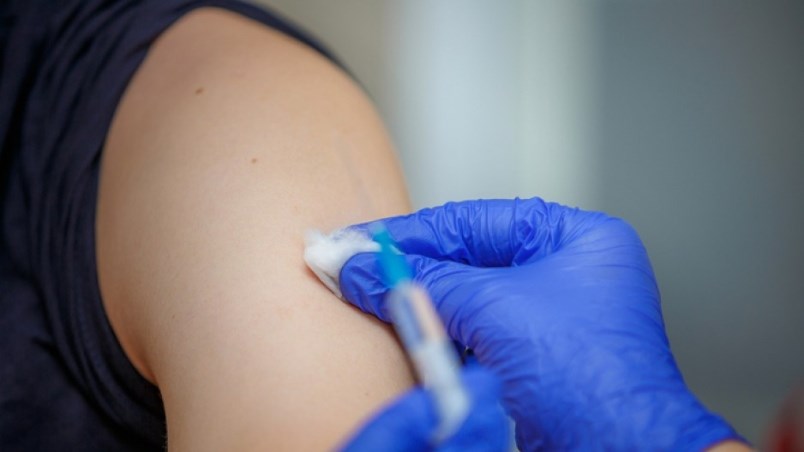Canada became the third country in the world Wednesday to officially approve a rigorously tested COVID-19 vaccine — but it did so with some caveats.
Roughly 4,000 doses of the Pfizer-BioNTech vaccine are expected to arrive in B.C. next week, and by March, health officials predict nearly 400,000 people will have been immunized across the province. Front of the line are seniors, health care and essential workers.
But despite signing an agreement for 249,000 doses in December, four million by March and securing the option to buy 56 million more, Health Canada explicitly did not approve the Pfizer for several cohorts of Canadians.
“The vaccine is approved for people who are 16 years of age and older,” wrote Health Canada in announcing its decision. “Its safety and effectiveness in people younger than 16 years of age have not yet been established.”
Like other parts of their anatomy, children’s immune systems are still developing and tend to provoke stronger immune responses when exposed to a vaccine. And while some tests have begun to look at how children respond to the Pfizer vaccine, it’s still too early to say it’s both safe and effective for those under 16.
The vaccine has also not been approved in Canada for pregnant women and those with compromised immune systems, noted B.C. provincial health officer Dr. Bonnie Henry Wednesday, both of which were left out of the vaccine maker's 44,000-participant studies.
“Unfortunately, we do not yet know if these viruses work in immunocompromised patients or are safe,” she said.
HOW DOES IT WORK?
Of the millions of other Canadians who qualify for the Pfizer vaccine, many will soon be asking themselves: What am I about to put in my body?
The Pfizer vaccine relies on relatively new technology developed over the last several years in attempts to deliver immunity against other coronaviruses like the Middle East Respiratory Syndrome, or MERS.
A traditional vaccine directly stimulates an immune response, setting off alarm bells to stimulate the production of antibodies. The Pfizer vaccine, on the other hand, adds an extra step, teaching your own cells how to recognize the distinct spiky shape of the coronavirus and produce its own antibodies.
The active ingredient is not live virus, but an easy to produce synthetic Messenger ribonucleic acids (mRNA), the blueprints which teach our cells how to make proteins. In the case of the Pfizer vaccine, the mRNA contains the genetic instructions for making the SARS-CoV-2 spike protein. When the mRNA is introduced to immune cells, they start making the spike protein in the same way as they would during a real coronavirus infection.
Now your cells are primed to trigger antibodies to attack the spike protein. Should you be exposed to the real coronavirus, your immune system will quickly recognize and exterminate it.
Or as Henry put it Wednesday, mRNA vaccines help us “skip the illness and go straight to producing antibodies.”
Two doses are administered in the arm 21 days apart. Studies found the vaccine to be 95% in preventing a SARS-COV-2 infection a week after the second dose.
POSSIBLE SIDE EFFECTS
Side effects associated with the Pfizer COVID-19 vaccine are similar to other vaccinations, notes Health Canada.
“The side effects that followed vaccine administration in clinical trials were mild or moderate,” wrote the approval body Wednesday. “They included things like pain at the site of injection, body chills, feeling tired and feeling feverish.”
“These are common side effects of vaccines and do not pose a risk to health.”
Like all vaccines, there’s a chance there will be serious side effects, and while these are rare, the odd allergic reaction has been observed.
The U.K. warned that two people had severe allergic reactions on the first day of vaccinations, an issue that had not arisen in clinical trials with more than 44,000 people. The reactions are being investigated and the U.K. has asked people who are prone to severe allergic reactions to not get the vaccine for now. The two patients are recovering well, according to British authorities.
But after “rigorous scientific review,” Health Canada said “No major safety concerns have been identified.”
Before the coronavirus pandemic hit the world, Mumpsvax was the fastest-developed vaccine in history — and that took four years to develop. But the accelerated development of dozens of COVID-19 vaccines has not so far hindered the efficacy and safety of some of the top contenders.
“We haven’t heard of any serious side effects, which is great,” said Tam in reference to the Pfizer vaccine, which took four months to develop.
Tam said Tuesday Canada has “several layers of surveillance and health monitoring” in place, including the Canadian Adverse Events Following Immunization Surveillance System, hospital-based networks detecting serious health effects and clinical researchers looking at more long-term health consequences.
Still, added Tam, “when we actually begin to roll it out into millions of people, even rare side effects need to be detected.”
“If we detected a signal, there will be a rapid response to investigate.”



